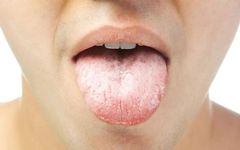Director Zhao popularizes health and wellness knowledge
Click below to follow for free↓↓↓
In daily life, many people have a phlegm-damp constitution. How much do you know about this condition? What are the symptoms of phlegm-damp constitution? I believe everyone is eager to learn more, so let’s take a closer look at these aspects, hoping to be of help to everyone.
What are the manifestations of phlegm-damp constitution, and how to self-check?
1. Regularly check your tongue. If the tongue coating is relatively white and there are teeth marks on both sides of the tongue, it indicates that there is a problem in the body, and timely examination and proper treatment are needed.
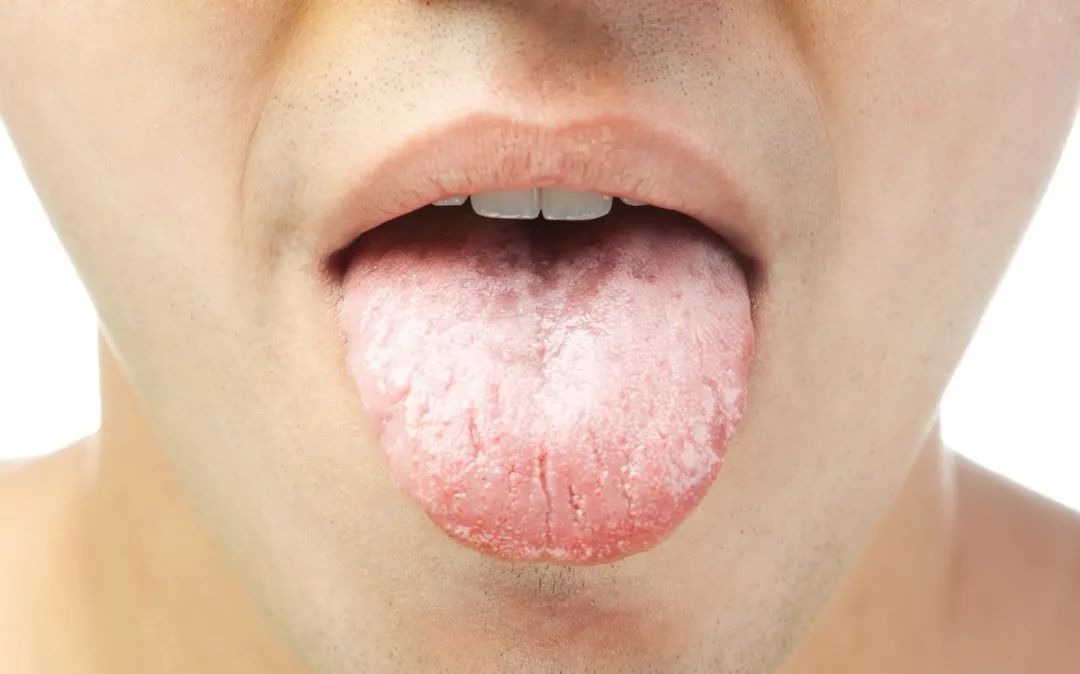
2. If you often dislike drinking water, it indicates that there is a problem in the body. Also, frequently check the color of your lips; if they are pale, timely treatment is necessary.
3. If the body is generally in an obese state, with a soft and greasy abdomen that leaves a dent when pressed, and if the facial skin is oily or the complexion is dark yellow, with puffy eyelids and frequent drowsiness, these all indicate that there is a problem in the body.
4. Observe your bowel movements. If you have frequent, loose stools and often wake up at night to urinate, averaging 3-4 times a day, this also indicates a phlegm-damp constitution.
5. If you often feel drowsy, have cold hands and feet, and produce a lot of phlegm, along with gastrointestinal discomfort or joint pain, these phenomena require vigilance.

6. If you frequently experience emotional agitation, irritability, forgetfulness, and a tendency to overeat and be inactive, along with prolonged drowsiness, these phenomena may indicate a problem in the body, and you should check promptly.
7. When phlegm-damp constitution occurs, it can easily lead to complications such as bleeding, stroke, coronary heart disease, and joint pain, often accompanied by tinnitus.
10 Chinese Patent Medicines for Resolving Phlegm, Strengthening the Spleen, and Eliminating Dampness
1. Wushi Tea Granules
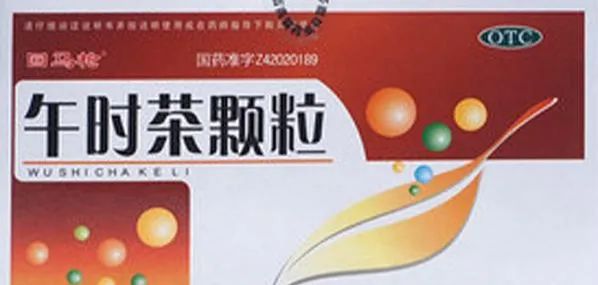
The main ingredients of Wushi Tea Granules include Cang Zhu (Atractylodes), black tea, Huo Xiang (Agastache), Qiang Huo (Notopterygium), Hou Po (Magnolia Bark), etc. This medicine has excellent warming and damp-resolving effects, treating conditions caused by cold-damp affecting the spleen and stomach, mainly seen in nausea, vomiting, diarrhea, lower abdominal cold pain, headache, and body aches. Wushi Tea Granules effectively eliminate phlegm-damp evil.
2. Shen Ling Bai Zhu San
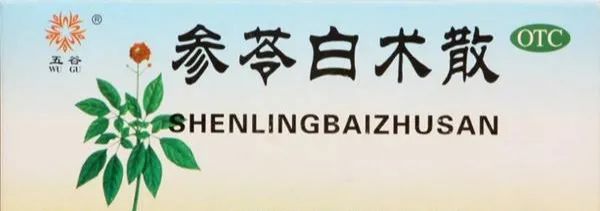
Shen Ling Bai Zhu San consists of Ren Shen (Ginseng), Fu Ling (Poria), Bai Zhu (White Atractylodes), Yi Yi Ren (Job’s Tears), etc. It has excellent damp-resolving and spleen-strengthening effects, mainly treating loss of appetite, chronic diarrhea, fatigue in the limbs, and low energy. It can treat diarrhea caused by spleen and stomach dysfunction, low immunity, and poor nutrient absorption.
3. Xiang Sha Yang Wei Wan
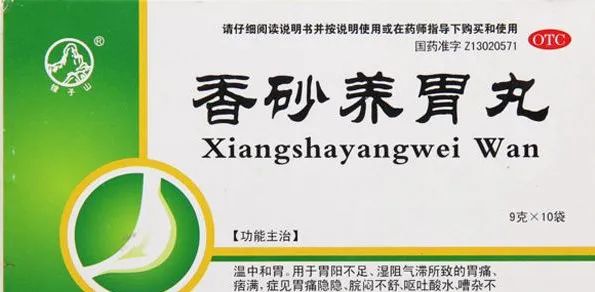
Xiang Sha Yang Wei Wan mainly consists of Mu Xiang (Saussurea), Sha Ren (Amomum), Bai Zhu (White Atractylodes), Fu Ling (Poria), Chen Pi (Dried Tangerine Peel), and other herbs. It has damp-resolving, spleen-strengthening, and warming effects, treating gastric acid reflux caused by damp evil affecting spleen and stomach function. It is mainly used in modern clinical practice for treating gastritis, indigestion, and respiratory infections.
4. Jia Wei Huo Xiang Zheng Qi Wan

This medicine is mainly composed of Huo Xiang (Agastache), Zi Su (Perilla) leaves, Bai Zhi (Angelica Dahurica), Chen Pi (Dried Tangerine Peel), roasted Bai Zhu (White Atractylodes), processed Ban Xia (Pinellia), Hou Po (Magnolia Bark), and other herbs. It has excellent damp-resolving and spleen-strengthening effects. Chen Pi and Huo Xiang have strong phlegm-damp eliminating properties. This medicine effectively resolves dampness, releases the exterior, and regulates Qi, treating phlegm-damp evil caused by internal injury.
5. Fu Zi Li Zhong Wan
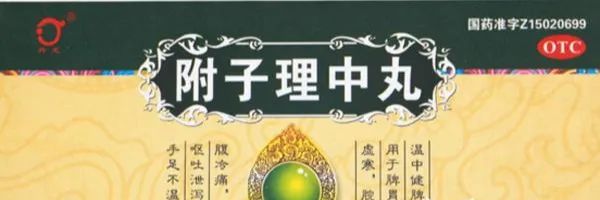
Fu Zi Li Zhong Wan mainly consists of Fu Zi (Aconite), Dang Shen (Codonopsis), roasted Bai Zhu (White Atractylodes), etc. It has excellent cold and damp-resolving effects, mainly used to treat spleen and stomach weakness caused by cold-damp evil, leading to loss of appetite and lower abdominal pain. Modern clinical research mainly applies it in cases of gastrointestinal ulcers, duodenal ulcers, and heart failure.
6. Ping Wei Wan
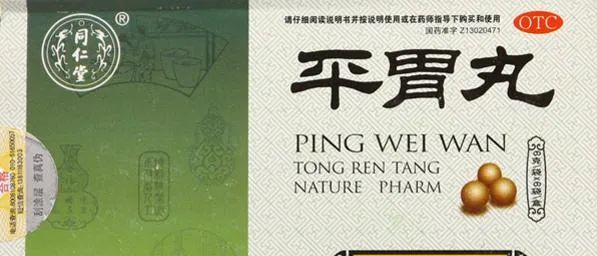
Ping Wei Wan mainly consists of roasted Cang Zhu (Atractylodes), Hou Po (Magnolia Bark), Chen Pi (Dried Tangerine Peel), roasted Gan Cao (Licorice), and other herbs. It has drying dampness and strengthening spleen effects, mainly treating dampness obstruction caused by spleen Qi deficiency, leading to loss of appetite and abdominal distension. It is mainly used in modern practice for various gastric diseases such as gastritis, stomach pain, acid reflux, and bloating.
7. Bao He Wan

Bao He Wan contains Jiao Shan Zha (Hawthorn), Fu Ling (Poria), Chen Pi (Dried Tangerine Peel), and other herbs. It has excellent damp-resolving and digestive effects, as well as stomach and spleen strengthening properties, treating nausea and vomiting caused by damp evil leading to spleen and stomach deficiency. Modern research has confirmed its ability to aid digestion, stop diarrhea, and regulate spleen and stomach Qi.
8. Jian Pi Wan
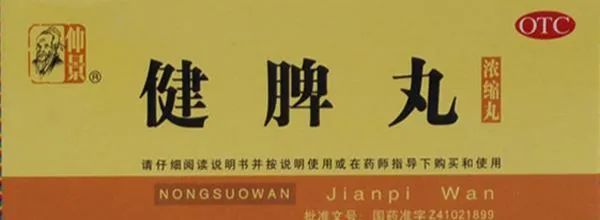
Jian Pi Wan mainly consists of roasted Bai Zhu (White Atractylodes), Ren Shen (Ginseng), Chen Pi (Dried Tangerine Peel), Mai Ya (Barley Sprout), and other herbs. Its effects include treating loss of appetite caused by liver and spleen deficiency, chest tightness and rib pain due to damp evil entering the body, and fatigue due to insufficient liver Qi. It has modern applications in treating nausea, vomiting, diarrhea, and abdominal fullness.
9. Mu Xiang Shun Qi Wan
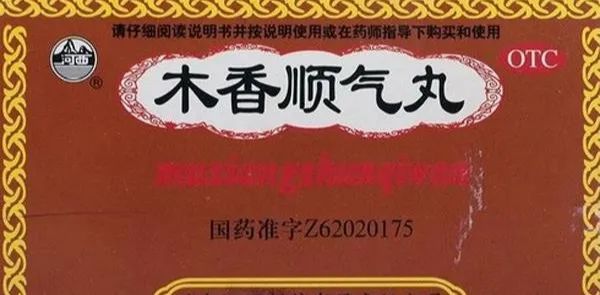
Mu Xiang Shun Qi Wan mainly consists of Sha Ren (Amomum), Cu Xiang Fu (Cyperus), Gan Cao (Licorice), Hou Po (Magnolia Bark), Chen Pi (Dried Tangerine Peel), Mu Xiang (Saussurea), and other herbs. It has Qi-moving and damp-resolving effects, strengthening the liver and spleen, treating chest tightness and shortness of breath caused by damp evil disturbance, rib pain, nausea, vomiting, and acid reflux. Modern clinical research mainly applies Mu Xiang Shun Qi Wan in cases of loss of appetite and rib pain caused by damp evil.
10. Ling Gui Zhu Gan Tang
Ling Gui Zhu Gan Tang mainly consists of Fu Ling (Poria), Gui Zhi (Cinnamon Twig), Bai Zhu (White Atractylodes), and Gan Cao (Licorice). It primarily treats water retention in the middle burner leading to edema, with excellent warming and regulating effects, mainly treating spleen and stomach dysfunction caused by damp evil, leading to insufficient liver Yang and rib pain. Modern research mainly addresses diseases caused by damp evil obstruction.
Note: Some text and image resources in this article are sourced from the internet. The purpose of reprinting this article is to convey more information. If there are any errors in source attribution or infringement of your legal rights, please notify us immediately, and we will delete it promptly and apologize.
Previous Highlights:
10 Best Chinese Patent Medicines for Quickly Eliminating Damp Heat
9 Chinese Patent Medicines for Parkinson’s Disease, Improving Tremors, Bradykinesia, and Muscle Rigidity
Can’t Sleep All Night? Doctors Introduce Four Chinese Patent Medicines for Easy Sleep and Restful Nights

